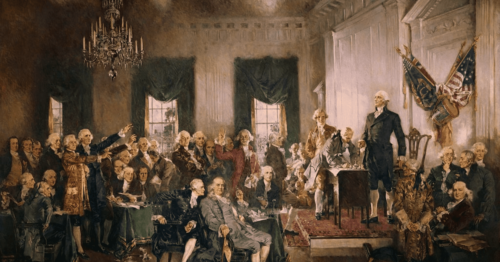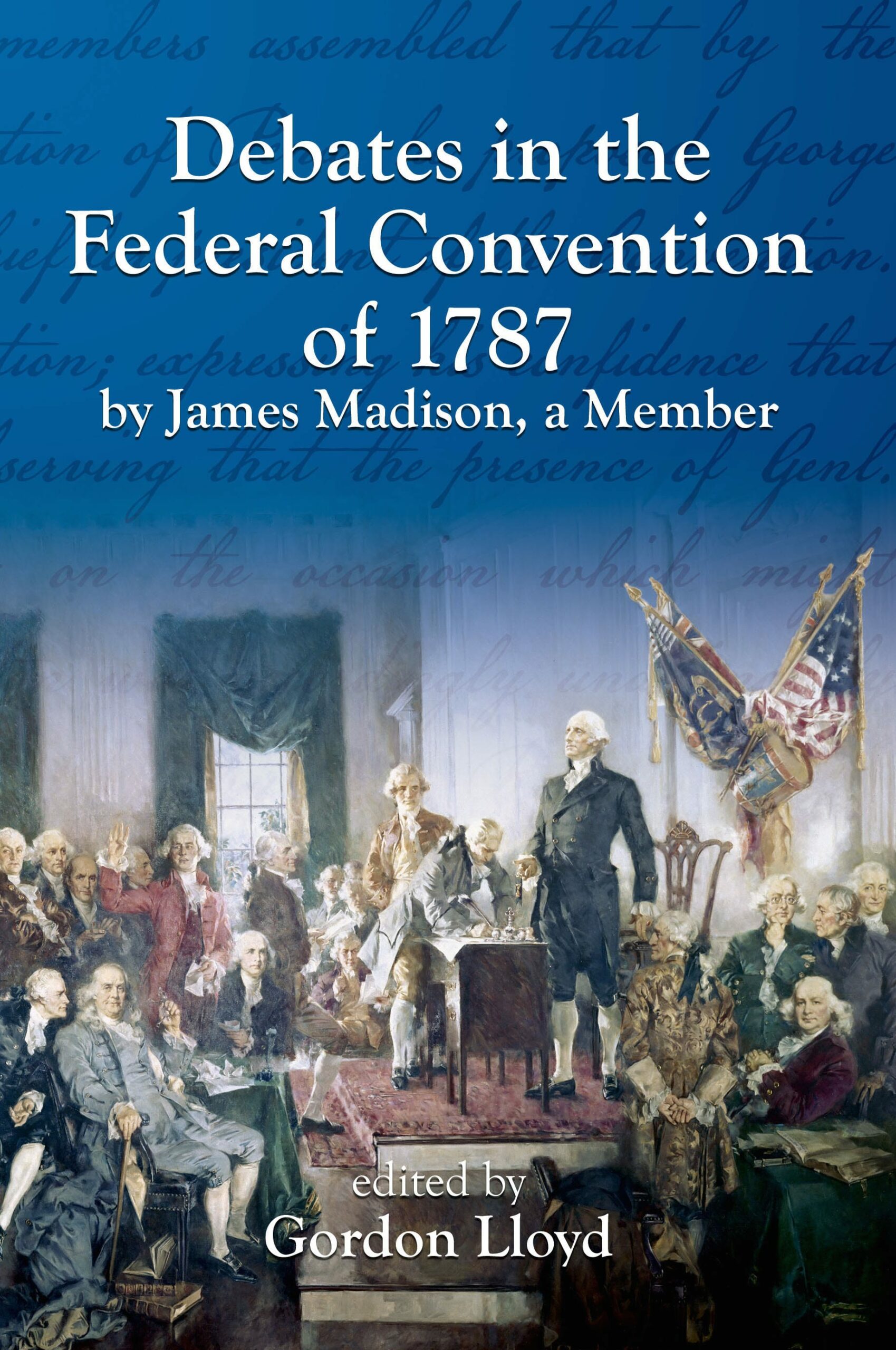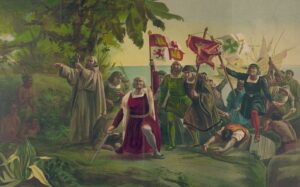
Gordon Lloyd (1942–2023)

Word has reached us of the death of our long-time colleague and friend, Gordon Lloyd.
Gordon was born in England, raised in Trinidad, and became a naturalized American citizen after coming to the United States for graduate study. He taught for many years at Pepperdine University. At the time of his death, Gordon was the Dockson Emeritus Professor of Public Policy at Pepperdine. Gordon earned his bachelor’s degree in economics and political science at McGill University. He completed all the coursework toward a doctorate in economics from the University of Chicago before receiving his master’s and Ph.D. degrees in government at Claremont Graduate School.
Gordon was an authority on the American Founding. He taught courses and seminars on the Founding for many years with Teaching American History, especially in its Master’s program in American history and government.
Gordon edited three volumes on the Founding for TAH’s core documents series, The American Founding, The Constitutional Convention, and The Bill of Rights. TAH also published Gordon’s Debates in the Federal Convention of 1787, by James Madison, a Member. Gordon believed that Madison’s account of the convention was not a mere collection of notes, but a carefully prepared memorandum of an extraordinary event. His edition of Madison’s work restored it to what Gordon believed Madison intended it to be.
Years ago, Gordon gathered everything he knew about the Constitutional Convention in one encyclopedic exhibit. We have restored that exhibit on this website, making all but a few features (that were created with outmoded software) again available
In addition to the Founding, Gordon worked on issues of public policy, most recently with David Davenport. Their last collaboration, to be published later this year, is Equality of Opportunity: A Century of Debate.
Below we provide a description of Gordon’s Constitutional Convention exhibit and an interview with him about it that appeared on the blog a few years ago.

Reintroducing The Constitutional Convention Website
We’ve revived our online exhibit on the Constitutional Convention, making its encyclopedic coverage of the events, themes, and participants in the convention again available.
Professor Lloyd’s exhibit maps the process by which 56 delegates from thirteen newly independent states, each jealous of their own interests and prerogatives, managed to hammer out a framework of government that has served our nation for over two centuries. The exhibit presents the founders’ deliberations through a variety of lenses:
- An introduction provides historical context, including:
- the state governments established shortly after the Revolution began;
- the initial national government, the Articles of Confederation, its deficiencies and the calls to replace it, the assembling of delegates to the Convention, and the setting of ground rules for the debates;
- the assembling of delegates to the Convention and the setting of ground rules for the debates.
- For those interested in the details of the daily debates, Lloyd offers a calendar-linked, day-by-day summary of them, based on the notes James Madison took during the convention and later edited.
- To give a sense of the convention as a whole, Lloyd discusses it as a four-act drama—including rising tension, moment of crisis, resolution and denouement.
- Lloyd provides short essays on eleven major themes discussed during the debates, and details on the delegates, including:
- a record of which delegates were in attendance on which dates, and
- lists of delegates by their ages, education levels, economic interests, titles of honor, and prior experience in public service on the continent, with links to portraits and brief biographies of most of the delegates.
- Finally, there’s an annotated gallery of artists’ interpretations of the convention and an amusing account of the dinner at City Tavern given to honor George Washington when the convention ended.
An Interview with Gordon Lloyd
How did you first become interested in the American Founding?

As an undergraduate at McGill University, I studied politics and economics, and tried to do the same in my doctoral studies, although I had to transfer from the University of Chicago to Claremont Graduate School in order to write a dissertation that would treat politics and economics together. In the founding, I saw economic and political concerns clearly linked. The Revolution was fought because of “taxation [an economic issue] without representation [a political issue].” Feudalism entails a hierarchical economic organization, but republicanism—the politics of consent rather than automatic obedience—entails a different organization. It was Madison who said that the number one political question concerns the distribution of property. That being so, how can you not treat politics and economics together?
Your work on the website pulls together a great deal of information, ranging from a day-by-day account of the Constitutional Convention to a month-by-month account of the ratification process, and including biographies of the men involved. Are there any books on the founding that do this?
Not that I know of. There are books that focus on aspects of the founding—the Convention, the ratification process, The Federalist, the Bill of Rights. My approach is to show the connections between all these things. Instead of writing a book on the interconnections, I thought that a website could serve as a foundation for people in the next generation to do this work. The idea arose around 2005, as [MAHG program cofounder] Roger Beckett and I were brainstorming ways to promote study of the founding.
The first sentence of the exhibit plunges us into the story: “The year was 1787 . . . . ” You do not begin with a thematic statement. Did you want to avoid telling readers what to think about all the information you provide?
Yes. I want to give teachers and students the tools to answer the questions for themselves. My purpose is to reattach Americans to their country, after years of history textbooks that lead Americans to hate or distrust our founding because of its imperfections. Doing this may restore the debate that took place at our founding and that remains relevant today.
When I go around giving talks about the website, I often use a lecture I call “Ten Ways to Love Your Framers.” You can study them through a pictorial approach, a biographical approach, a textual approach, by viewing the histories of the convention and ratification processes as suspenseful dramas, etc. I don’t say that one way is the only way.
What, above all, should Americans understand about the Constitutional Convention?
It was the first time in human history that a government had been designed and established by a group of people representing different geographical areas. Fifty-five people sitting in a room together, debating rationally, managed to produce a government that has lasted and changed the world.
I hope those who visit the site will get a sense of the dynamic of events over the 88-day period between May 29 and September 15, 1787. Delegates met five hours a day, six days a week, constantly discussing the serious disagreements among them. Each delegate had to decide when to stick to his guns and when to compromise. If you have argued forcefully for your position, how do you gracefully change your mind? Some delegates were thinking, “I’d like to take the next carriage out of here, but honor requires me to stay.” Others did leave. There was a period of about ten days at the end of June that some would leave out of the account, when delegates were deadlocked and nothing was decided. But if you leave out this period, you miss a sense of what it takes for people to get so frustrated that they figure out a way to compromise.
That’s what I think Americans miss in this history—the dynamic of doubt and hope, the tension-relieving discussions in alehouses. Seventy delegates were selected to attend the Convention; 55 of these showed up in Philadelphia, and in the end there were 39 signers. The last group had committed themselves to see the process through to the end; they felt that the opportunity to achieve a workable republican government would perhaps never arise again.
Some used their rhetorical influence to move things forward; others worked steadily behind the scenes. Studying the ways the different delegates dealt with disagreements and deadlocks reveals a lot about human nature. And there is nothing wrong in reminding ourselves of the messiness of joint decision-making.
In your view, who were the most influential convention delegates?
Madison is obviously a very influential delegate, made more effective with Washington’s support. But the role of Roger Sherman of Connecticut is underestimated. He signed the Declaration and the Constitution. He’s the only one to have participated at every step of the founding, from the Articles of Confederation, which he also signed, through the Constitutional Convention—attending almost every session—through the ratifying convention for his state, to the creation of the Bill of Rights. If you track the interactions between Sherman and Madison from 1776 to 1787, you’ll see in a nutshell the two sides of American politics at the founding. They were the two poker players who struck a deal between the proponents of a strong central government and those who preferred more power to be retained by the states.
How do you explain the delegates’ success in devising a plan for government that has served us for more than two centuries?
Was it luck? Divine providence? I’d say yes, and yes. But the Convention demonstrates a fact of life: to do something extraordinary, you need an extraordinary opportunity and extraordinary people to seize it. There are moments in life when people rise to the occasion.
Today, have we lost sight of what the Constitution was meant to do?
From the very beginning, people have differed over how to respect the document. Do we interpret it literally, or elastically?
Since the Framers began their work, we’ve had two debates: one horizontal, the other vertical. One concerns the separation of powers. We are always at risk of making one branch of government more important than another. The other issue is federalism: the relationship between the national government and the state governments. Major events—the Civil War, the New Deal, the Affordable Healthcare Act—have changed this relationship. Some competition at both the horizontal and vertical levels of our separate governing powers is healthy and built into our system. To the extent that we replace this competition with coordination and cooperation, because we decide to sacrifice liberty to efficiency or security, we’ll lose our way.



